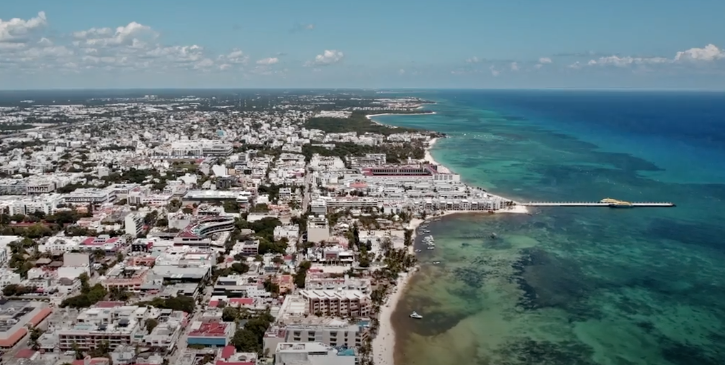3-Step Guide to Safely Buying Resale Property in Mexico

Finally, you decided on a place. After weeks or months of looking at listings, online or in person. All the boxes are checked. The price is right, perfect location, you can already picture yourself cooking meals in that perfect kitchen! It's easy to get excited and overlook important steps that can make a dream investment turn into a big mistake
Buying a resale property in the Riviera Maya is a great opportunity, especially now, but it’s a different process than you’re used to in the U.S. or Canada.
To be successful, it takes a methodical process. This is your three-part framework for navigating all the steps with confidence. Pro-tip: Contact Mycasa Real Estate for help every single step of the way.
STEP 1 - ASSEMBLE YOUR TEAM
Before you even start looking for properties and make an offer, picking your team is the most important part of the initial process.
- A Dedicated Buyer's Agent:In Mexico, it's common for a real estate agent to represent both sides. You need an agent who works exclusively for you, the buyer. A true buyer's agent has a duty to protect your interests. They provide unbiased advice on pricing, give you access to any property on the market (not just their own listings), and help you negotiate the best possible terms. They are your guide on the ground, advocating for you at every turn
- An Independent Real Estate Attorney:Would you get divorced and use your soon-to-be ex spouse's attorney to save money? No, of course you wouldnt! Never rely on a seller or developer's attorney. Your own lawyer is your shield. They review all contracts, explain your legal rights and conduct the super-important due diligence needed BEFORE we put in an offer. Their primary role is to make sure the property can be legally and safely transferred to you, free of any surprises
STEP 2 - LEGAL DUE DILIGENCE
With your attorney taking the lead, this step is where we determine the property's legal standing and, most importantly, that it can be transferred to you by the seller (the legal owner).
This process will uncover the property's history and confirms that its a clean, transferrable asset. Any red flags here can save you from lots of pain down the road.
Your attorney will conduct and research the following:
A Full Title Search: This verifies that the seller is the legal owner listed on the title deed (escritura plubica) and has the right to sell it to you. This process also ensures the property is private and not on social land (aka ejido land)
A Lien Certificate: (Certificado de Libertad de Gravamen) - this official document from the Public Registry confirms the property is free of liens, mortgages, tax debts, or any other financial encumbrances that must be paid off to transfer the property in a sale. It ensures that nobody in the future has ANY financial claim to your new home.
Zoning and Permit Verification: (Uso de Suelo) - Confirms that the property is legally zoned for residential use and that all construction was done with proper permits. An unpermitted addition, for example, can turn into a major headache.
Verification of No Debts: Have the property's taxes (predial), HOA, electricity (CFE), and water bills been paid to date? These debts remain with the property after a sale and become the new owner's responsibility.
Did you find the perfect piece of land and the price is too good to be true? You could be looking at ejido land.
Check out Part 8 of our How Not To Get Scammed series, HERE, for the full rundown of the risks
STEP 3 - GET A HOME INSPECTION
In Mexico, resale properties are almost always sold as-is. You, the buyer, inherit all existing physical defects once you close. But, the items/equipment left behind should be in working order and the property itself should be free of any dangerous defects (cracks in the foundation, electrical issues, mold, etc).
Once the legal paperwork and due diligence check out, its time to investigate this as well.
The climate here can be harsh on buildings and equipment. The sun, humidity, storms and salt air can all have an effect.
An inspector will evaluate the property for anything an untrained eye would miss:
Structural Integrity: Checking for cracks, settling, or other foundation issues
Waterproofing and Leaks: Inspection of the roof & walls to find evidence of water intrusion, leaks & mold
Electrical & Plumbing Systems: Ensuring wiring is safe, electrical panel is sufficient, water pressure is adequate
HVAC, Appliances, and Specialty Equipment: testing of AC units, pool equipment, water heaters
The inspection report is a powerful negotiation tool and can be used to negotiate the price in your favor if repairs are needed, or to ask the seller to fix critical issues BEFORE closing.
By taking these 3 steps into account and navigating your purchase the right way, you can make sure that the property stays a dream and doesn't become a nightmare you wish you'd walked away from.












Comments (0)